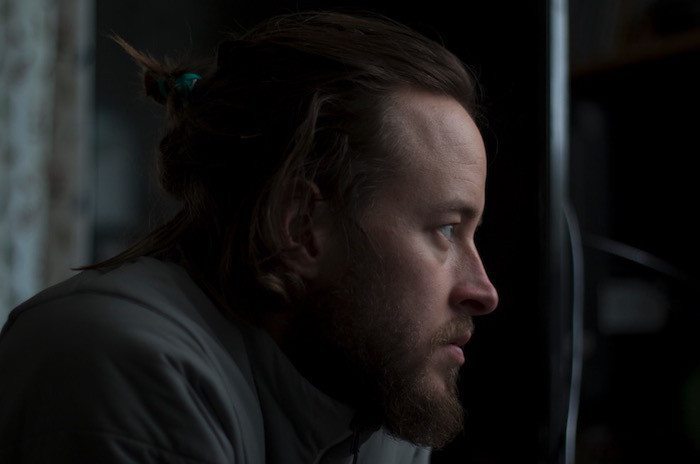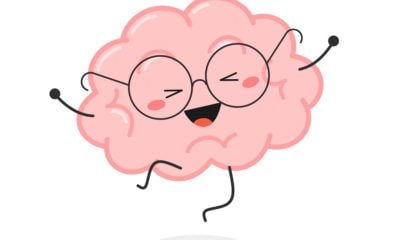How To Find Your Purpose When You Feel Off Course
Discovering your purpose in life is a feeling like no other. This will help you find yours!
In certain periods of our lives, we often feel like we don’t have any purpose.
It’s normal to feel that way.
Especially if we’ve experienced a traumatic life event, like divorce or death, or been stuck in the same condition for a while, such as working on the same job for years.
When we feel like we have no purpose, we’re actually comparing our current condition with what we expect to be or have, we just can’t see clearly what that expectation is.
Perhaps you had a purpose to be happily married, but then you were divorced.
Perhaps you had a purpose to be the best in the workplace, but you weren’t chosen for the promotion.
These are just a few of the many situations we find ourselves in that give us pause about our purpose.
We apparently forget that those things (being happily married and getting a job promotion) aren’t life purposes, and our existence isn’t defined by them.
They, undoubtedly, are parts of our existence that contribute to valuable learning lessons in life.
We only grow from experiencing both the lighter and the darker sides of life, which is something to be grateful for.
The thing with discovering your purpose is that it’s not as simple as reading a book and finishing it.
It’s not even as straightforward as going to school and obtaining a degree in psychology, humanities, business, engineering, medicine, or math.
It’s not that simple and straightforward because discovering your purpose isn’t a linear effort.
Discovering Your Purpose Is Not Easy
Discovering your purpose is an ongoing process and it depends solely on you.
You’ll go through ups and downs when looking for it.
Some days, you’ll feel good that your life is purposeful; but on other days, you’ll feel that you’re lost.
Acknowledge both with an “observing mind.”
Either way, it’s just what you feel.
Your existence doesn’t depend on whether you feel that you have or have no purpose.
In Zen Buddhism, there are two types of minds: the thinking mind and the observing mind.
When you’re thinking about anything, you’re using the “thinking mind.”
However, when you’re observing how you think, you’re using the “observing mind.”
For instance, if you think about how your dog was hit by your neighbor’s car, you’ll feel hurt and upset: you’re using the thinking mind.
When you reflect and notice that you are using the thinking mind and say to yourself, “I was feeling hurt when I thought about Bruno,” you’re using the observing mind.
In the Beginning, Your Purpose Doesn’t Appear Big
If you were to go back in time and sit down with any significant historical influencer, like Gandhi, Nelson Mandela, or Martin Luther King, Jr., and ask them how they knew what their purpose was, they would tell you they didn’t know.
They simply did what felt right to them, one step at a time, and their purpose gained clarity as they took steps toward it.
We have a tendency to think that our purpose should look and feel as big as the accomplishments of great men and women who have achieved their own purposes.
But our purpose doesn’t have to start out big, it becomes something bigger than what we knew once we become the person we have to be in order to achieve it.
As we grow, it just feels like the next logical step.
Let me reiterate: How you feel doesn’t define who you are.
Even when you feel your life is purposeless, it’s just a temporary feeling.
You might still be on track, without you noticing it.
Oftentimes, when we’re using the thinking mind, our observing mind turns off.
Since there is no training to discover your purpose, you’d need to experiment with questions.
Questions make you think with the so-called “thinking mind” that will eventually turn on the “observing mind.”
Ask Yourself What You Truly Want In Life
Ask yourself this question along with “How will I get there?”
Answer these questions honestly and wholeheartedly.
Remove your doubts for a moment, because no one is judging and telling you what you can or can’t do.
You’re just asking yourself – no more and no less.
The five questions presented below will help guide you in self-discovery:
1. What do you love the most in life?
It can be a thing, an activity, or a state of mind.
Dig deeper into why you love those things.
How does it make you feel?
Elated?
Calm?
Peaceful?
Euphoric?
2. Why do you love it?
Once you decide what you love most in life, give reasons for why you love it (other than it makes you feel good).
This is a must if you truly want to discover your purpose.
Does it propel you forward to be a better person?
Does it allow you to learn new things and be more accomplished?
Write it down or let your fingers type things down freely.
Free writing is both therapeutic and reveals one’s inner thoughts.
3. How can you make it worthwhile for more people?
That thing you love could be useful for more people.
Think about the various ways to disseminate what you love.
Make it an important part of your life, so you become its advocate of some sort.
4. Who do you admire the most in life?
Do you admire Noble Peace Prize winners?
Who are they?
Write down their names and their positive qualities.
Imagine your life in their shoes.
What would you do if you owned their qualities?
5. How can you be more like that person with what you have at hand?
Perhaps you’re a talented singer, web designer, writer, accountant, or blockchain developer.
What can you contribute to the world with those skills?
For instance, if you admire Nelson Mandela for his humanitarian and human rights works, but you’re a web designer, you can create a website dedicated to those issues.
Are We Guided Toward Our Purpose?
The texts of at least six religions suggest that humans have guidance.
Now, in an important scientific paper published in 2007 that re-defined the purpose of emotions, the researchers concluded that “A person could certainly do far worse, and arguably not much better, than to go through life making all decisions so as to maximize positive emotions (especially in a long-term perspective) and minimize negative ones.”
The researchers found that behavior pursues emotion.
In other words, we naturally tend to make decisions based on whether we believe they will help us avoid pain (such as guilt or actual physical pain) or maximize pleasure (such as bringing us joy or love).
If we look at positive emotions as signals or guidance that we are moving in the direction of our purpose, and negative emotions as indicators that we have strayed from our path, it fits perfectly with both the religious and scientific viewpoints.
In order to accept this view, we have to accept that humans naturally want good things for others.
The old paradigm that we are bad doesn’t fit with current scientific evidence.
Maximizing happiness does not involve stomping all over other people.
That type of behavior is associated with fear.
On the other hand, the researchers found “a fair amount ofevidence that anticipated emotion does lead to adaptive, beneficial,socially and personally desirable behaviors.”
When You Feel Good, You’re on Your Path Toward Your Purpose
The 2007 paper also found that “Positive emotions signal progress that is appropriate or better than appropriate, whereas negative emotions signal progress that is slower than expected or desired.”
Other research that directly investigated emotions and purpose reported that believing our life has a purpose affects our mood.
It found that we are more likely to feel that our lives are meaningful when we are in a good mood.
One reason may be that things feel more meaningful when we feel good.
Choosing positive behaviors that feel good when you choose them is a good way to fulfill your purpose in life.
You might feel like you have no life purpose, but it could just be a feeling.
After honestly answering questions about what you love the most, there is no reason for you not to have a purpose.
What you love the most is your life purpose.
It has been there all along.
Figure out how to expand it and surround yourself with it every day.
Remind yourself to be observant of your thoughts, feelings, and the facts about what you would love and how it would impact your life.
Have You Discovered Your Purpose In Life?
Are you one of the lucky people who has recognized their life purpose?
How do you serve others by being uniquely yourself?
Tell us in the commenter section!
And please take a second to like and share this article with others!












Marianne Mueller xpress themselves. I don’t like small talk. Therefore I don’t do parties anymore. I am beginning to learn how yo
November 10, 2022 at 10:31 AM
I have found that I am searching for a way to be happy without having to have a purpose. That makes me happy. I like to do things I want to do at 72 and mostly things that are mindless and take me off of my own ruminations. Some of these things are… Doing jigsaw puzzles, playing games online like words with friends and Toon blast and toy blast, reading books on kindle unlimited for nine dollars a month I can get as many books as I want. I have found that I can like being alone and not having to have friends anymore but if they come I like it when they are ones that can talk about Issues and express themselves. I don’t like small talk. Therefore I don’t do parties anymore. I am beginning to learn how taking care of myself and my own likes is more important than other people now. Especially as you age and you don’t have that many other people.
Nel
March 2, 2022 at 5:23 PM
To Linda: devastating loss & grief is why I’m here, too. Condolences are all I can send. Platitudes are all I have energy for.
Linda
January 19, 2022 at 11:25 AM
My husband dieD Christmas Eve. I lost everything that mattered. I love nothing and wish I was dead. Your purpose crap sounds like crap. Some times you love NOTHING.
Marcel
October 24, 2021 at 2:21 PM
What if I don’t love anything? Then your whole “plan” falls apart.
Jane
September 27, 2021 at 9:57 PM
Same for me, it hit me hard when my neice got married as she used to cone around a lot & now moved to Auckland she couldn’t care less & I am lost, in a job I hate too
storiesigviewer.com
July 23, 2020 at 3:52 PM
When people feel like they have no sense of direction, no purpose in their life, it’s because they don’t know what?s important to them, they don’t know what their values are.
Adolphine
October 12, 2019 at 4:42 AM
Thank you so much this really helped me to discover the real me